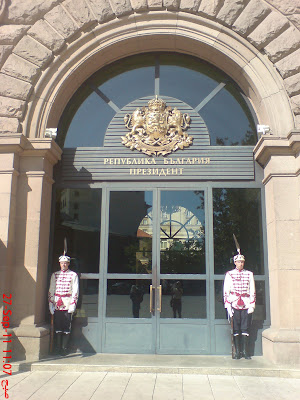Israel may face war crimes trials over Gaza

• Court looks at whether Palestinians can bring case • International pressure grows over conflict
Peter Beaumont
The Guardian, Monday 2 March 2009
Article history
A Palestinian man carries an injured boy into Shifa hospital in Gaza City during an Israeli attack on Gaza in January. Photograph: Khalil Hamra/AP
The international criminal court is considering whether the Palestinian Authority is "enough like a state" for it to bring a case alleging that Israeli troops committed war crimes in the recent assault on Gaza.
The deliberations would potentially open the way to putting Israeli military commanders in the dock at The Hague over the campaign, which claimed more than 1,300 lives, and set an important precedent for the court over what cases it can hear.
As part of the process the court's head of jurisdictions, part of the office of the prosecutor, is examining every international agreement signed by the PA to decide whether it behaves - and is regarded by others - as operating like a state.
Following talks with the Arab League's head, Amr Moussa, and senior PA officials, moves have accelerated inside the court to deliver a ruling on whether it may be able to insist on jurisdiction over alleged war crimes perpetrated in Gaza, with a decision from the prosecutor's office expected within "months, not years".
The issue arises because although the ICC potentially has "global jurisdiction" to investigate crimes which fall into its remit no matter where they were committed, Israel - despite having signed the Rome statute that founded the court and having expressed "deep sympathy" with the court's goals - is not a party.
The ICC, which has 108 member states, has not so far recognised Palestine as a sovereign state or as a member.
The latest moves in The Hague come amid mounting international pressure on Israel and a growing recognition in Israeli government circles that it may eventually have to defend itself against war crimes allegations. The Guardian has also learned that a confidential inquiry by the International Committee of the Red Cross into the actions of Israel and Hamas during the recent conflict in Gaza is expected to accuse Israel of using "excessive force" - prohibited under the fourth Geneva convention.
The Red Cross has been collecting information for two parallel inquiries, one into the conduct of Israel and a second into Hamas, both of which will be presented in private to the parties involved.
In the case of Israel, the Red Cross is expected to highlight three areas of concern: the Israeli Defence Forces' "use and choice of weapons in a complex and densely populated environment"; the issue of "proportionality"; and concerns over the IDF's lack of distinction between combatants and non-combatants during Operation Cast Lead. Hamas is likely to be challenged over its use of civilian facilities as cover for its fighters; its summary executions and kneecappings of Palestinians during the campaign; and its indiscriminate firing of rockets into civilian areas.
Meanwhile, sources at the ICC say it is considering two potential tracks that would permit it to investigate what happened in Gaza. As well as determining whether the PA is recognised internationally as a sufficiently state-like entity, the head of jurisdictions in the office of the international criminal court's prosecutor, Luis Moreno-Ocampo, is looking at whether the court can consider war crimes allegations on the basis of the dual nationality of either victims or alleged perpetrators whose second passport is with a country party to the court.
The court's deliberations follow more than 220 complaints about Israel's actions in Gaza. "It does not matter necessarily whether the Palestinian National Authority is in charge of its own borders," said a source at the court. "Right now the court is looking at everything from agreements it has signed on education to the constitution of its legal system."
Yesterday, Ehud Olmert, Israel's prime minister, warned Palestinian militants their continuing rocket attacks on Israel would not go unpunished. He said further strikes would "be answered with a painful, harsh, strong and uncompromising response from the security forces". More than 100 rockets and mortars have exploded in Israel in the six weeks since it ended its air and ground assault on Gaza, to which the government has responded with airstrikes.
Olmert's warning came as Israel's attorney general notified the prime minister that he was considering indicting him on charges of allegedly taking cash-stuffed envelopes from a Jewish-American businessman. Five corruption cases are pending against Olmert, although he has denied all wrongdoing. His spokesman said yesterday the charges against the prime minister would "disappear in the end".

تعليقات